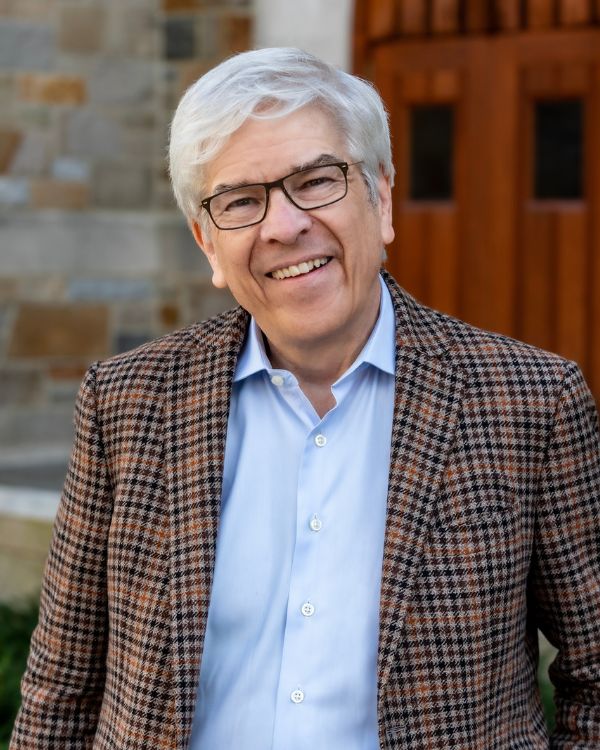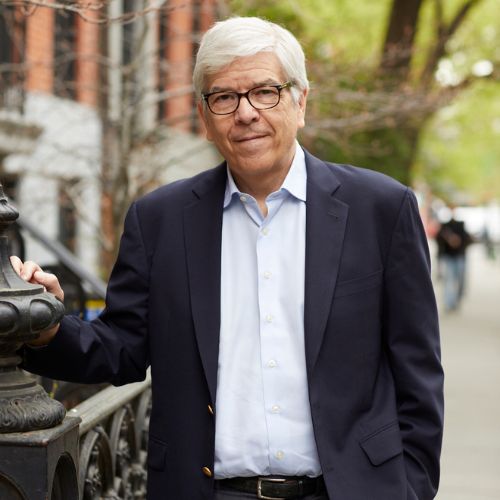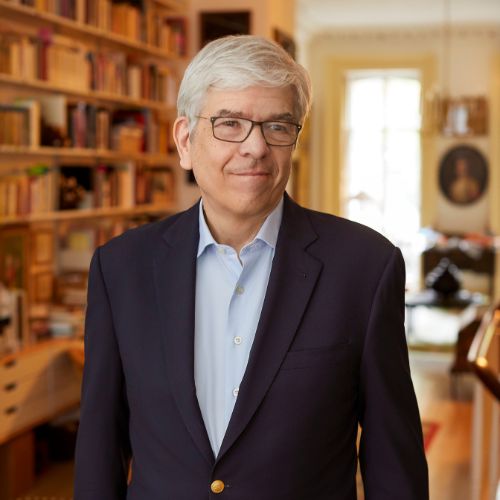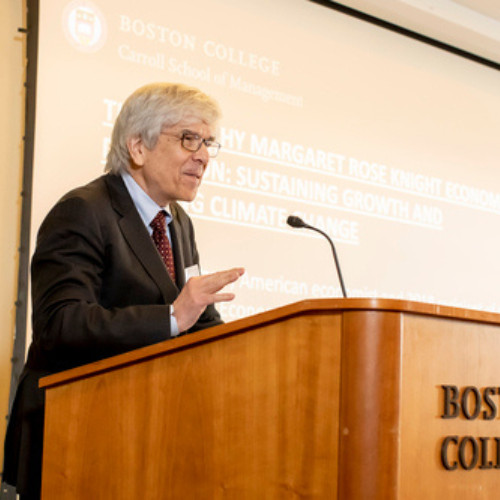What is one thing economists could use when trying to decipher current trends with inflation and economic growth? A little humility, suggests Nobel economics laureate and Carroll School Finance Professor Paul Romer.
Romer drew attention this fall with remarks following some surprisingly good economic news. In October, government data showed that the inflation rate was dipping at an increasingly quick rate even as the economy kept chugging along. That’s not supposed to happen, according to the economic playbook.

Nobel economics laureate and Carroll School Finance Professor Paul Romer
“The theory was you could only bring down inflation when the economy slows and that just is not true right now,” Romer, the Seidner University Professor, said in an Oct. 26 interview aired on Bloomberg Television. “Nobody expected this.”
According to Romer, economists and policy makers will need to acknowledge the uncertainty and follow the data, particularly with regard to interest rates. “So, right now we’re at a period where we’ve just got to look at the facts and not be confused by some theory that turns out to be wrong,” said Romer, who, in 2018, won his Nobel Prize in Economics for documenting how ideas propel innovation and growth.
Romer added that the Federal Reserve appears well on track with the goal of slicing the inflation rate to two-percent annually (the rate is now 3.1 percent and falling). This means the Fed should be moving toward not just pausing interest-rate hikes but also lowering the rates, he explained.
“It’d be crazy to raise rates at this point,” Romer said in remarks that spawned further media coverage. “I think they should start cutting rates and explain to people—within a year we’re going to be at our two-percent target—we need to sort of get ready to level off.”
The finance professor followed the interview with his own media, crafting two blog posts on the subject on his website. In one of those posts, Romer allowed that the inflation picture could change again: “Yes, this is a time of unusual uncertainty. Yes, something unexpected could happen. Yes, inflation could go back up.”
But he said the same rule—follow the facts—would apply. And, if the Federal Reserve “wants to show us that it is serious about following the facts, it has to respond to the facts that confront us, not to possibilities that it can imagine,” he wrote. “The best we could do now is feel our way along in the dark, paying extra attention to the facts” and not falling back on “a textbook analysis that fails to fit the facts.”
Meanwhile on the Heights
While keeping up his role as an internationally prominent economist and public intellectual, Romer has also been making the rounds on the Heights during his first semester as a faculty member at Boston College. For instance, he took part in an Oct. 5 colloquium sponsored by the Clough Center for the Study of Constitutional Democracy, discussing the nature of citizenship and the sense of place in a globalized world. On Dec. 6, he also spoke at a Physics Department colloquium, titled “Will Science Survive?”
At the Carroll School, Romer gave the faculty a tour of his far-spread research while presenting at the Bartunek Faculty Research Forum on Oct. 11. He cruised through topics like oral rehydration therapy for children in the developing world as one example of how relatively simple ideas have continually contributed to economic progress and human wellbeing. Romer noted that his fellow economists have generally been less receptive to his frequently iconoclastic ideas than management experts like John and Linda Powers Family Dean Andy Boynton, who touched on those ideas in his column in the inaugural edition of Carroll Capital and in his 2011 book The Idea Hunter: How to Find the Best Ideas and Make Them Happen.
With a slight nod toward his theme of uncertainty as an economic reality, the Nobel recipient also drew chuckles from a packed faculty audience in Fulton Hall by pointing out, “Everything involving people is pretty complicated, actually.”





